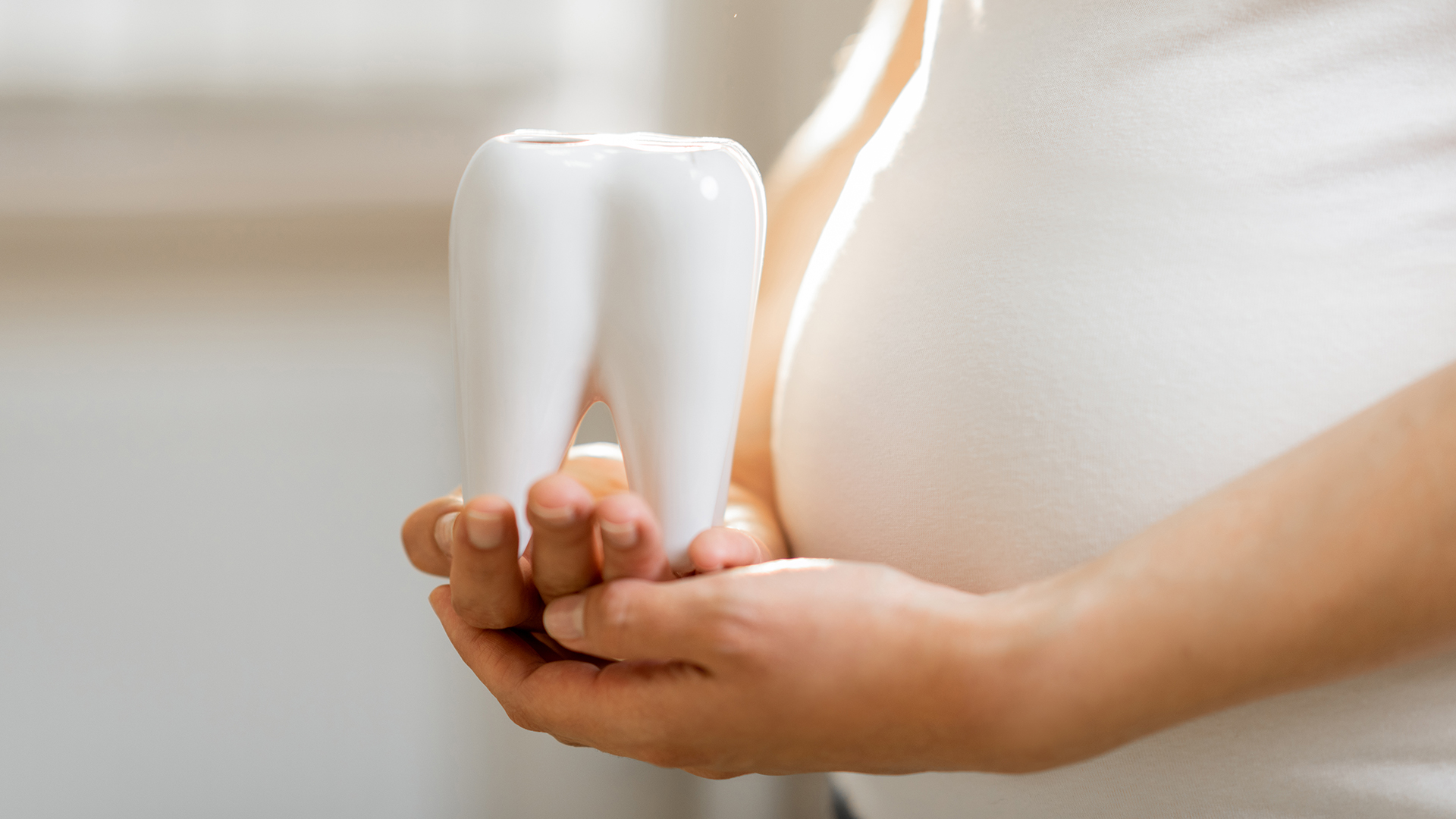
Dental health in pregnant women
Oral health and pregnancy
How does pregnancy affect oral health?
Oral care during pregnancy
Nutrients are essential for the health of pregnant women’s teeth
Calcium
Vitamin D
Dental health in pregnant women
When the mother learns the news of her pregnancy, she is conflicted by many different emotions, between overwhelming joy, fear, and dread. She is busy with the father in taking care of the health of the fetus and working to complete the pregnancy and reach the moment of giving birth safely. The truth is that pregnancy may deplete many important elements for the mother’s health, and among these elements is calcium, which is a crucial element for the health of bones and teeth. Therefore, every mother and every pregnant woman must pay attention to the health of her teeth and not only visit the gynecologist but also follow up with The dentist and listen to his advice to avoid complications and damage to the mouth and teeth. The hormonal changes the body goes through during pregnancy can affect oral health: Many people do not know that the oral cavity is one of the most affected places during pregnancy. We recommend visiting the dentist during the first three months of pregnancy.
Oral health and pregnancy
During pregnancy, the body goes through a series of changes, as some hormones such as estrogen and progesterone rise, which can cause dental problems, such as the well-known “gestational gingivitis,” which affects 36% of pregnant women.
Moreover, changes in the composition of saliva in late pregnancy and breastfeeding can lead to enamel erosion and the appearance of tooth decay. Therefore, the primary goal of maintaining oral health is to prevent tooth decay and gingivitis.
We must keep in mind that if a pregnant woman suffers from gingivitis before pregnancy, the risk to the pregnancy and the fetus increases, especially in cases of premature birth or low birth weight. It is estimated that the risk of premature birth can triple if the mother has gingivitis. One study even links gum disease to the length of pregnancy.
How does pregnancy affect oral health?
Pregnancy increases the body’s hormones. Such as estrogen and progesterone, which can affect oral health.
Here are some common dental problems and symptoms that you may experience during pregnancy:
- Increased risk of gum disease, including gingivitis
- Cavities and tooth decay
- Tooth erosion: The result of vomiting and reflux resulting from morning sickness during the first trimester of pregnancy, which causes stomach acids to come into contact with the teeth.
- Gingivitis or swelling
- Bleeding gums
- Bad breath
- Pyogenic granuloma: An increased growth of tissue on the gums, caused by hormonal changes during pregnancy.
- Some pregnant women do not experience any changes in their oral health. In other cases, sensitivity increases, and dental problems may worsen.
Speak with your obstetrician or dentist if you experience any of these dental issues while pregnant.
Oral care during pregnancy
For all these reasons, whether during or before pregnancy, it is necessary to insist on good oral hygiene.
Below, we offer you some oral health tips that will help avoid problems during pregnancy:
Following good oral hygiene and dental care practices is essential:
- Floss and brush your teeth three times a day, after every meal. This will help prevent dental plaque buildup and the risk of gingivitis.
- Visit the dentist and get dental treatment at any time during pregnancy, although it will be safer during the second trimester.
- If nausea causes vomiting, we recommend rinsing the mouth with water after vomiting and avoiding brushing the teeth immediately, so as not to damage the enamel.
- Use toothpaste and mouthwash containing fluoride, as they help remineralize enamel damaged by vomiting, which is common in many pregnancies.
- Follow a balanced diet and avoid eating between meals to have healthy teeth and a healthy baby.
- Avoid eating sweets and provide various sources of calcium.
- Avoid smoking or drinking alcohol
- It is recommended to perform a dental examination and cleaning during the first three months to avoid plaque buildup. This will help the dentist identify potential problems.
- Continue taking care of your teeth once your baby is born and ask your dentist how to take care of his or her teeth and gums.
- All these tips, along with proper dental hygiene, will help us improve our oral health during pregnancy. If you have any questions it is always best to talk to your dentist.
Nutrients are essential for the health of pregnant women’s teeth
Calcium
During pregnancy, the amount of calcium consumed by a pregnant woman must be increased to protect the teeth and bones, in addition to the needs of the fetus.
Sources rich in calcium:
Milk, cheese, plain yogurt, or sugar-free fruit yogurt
Calcium-fortified soy milk, almond milk, or other types of milk, cheese, and yogurt if you can’t eat dairy products (low in added sugar)
Some types of nuts, such as almonds.
Vitamin D
Vitamin D helps the body utilize calcium. Sun exposure in small amounts can help support vitamin D levels. While avoiding exposure to sunburn.
sources of vitamin D:
- Fatty fish, such as salmon, herring, and mackerel (discuss with your doctor how many types of fish you can safely eat during pregnancy)
- eggs
- Ghee
- Vitamin D-fortified milk (and alternatives)
- Bread and cereals.
- If you don’t get enough vitamin D from your diet, you can take supplements – ask your obstetrician if you need to take vitamin D supplements.
conclusion
It is best for a pregnant woman not to forget to take care of her oral and dental health amid her preoccupation with the health of the fetus, but it is more correct to pay attention to both matters, especially when knowing all the hormonal changes and their impact on the health of the mouth and teeth.
See also: What is dental calculus cleaning?
Follow us on Instagram The Gentle Dentist
Sources
- https://www.webmd.com/oral-health/dental-care-pregnancy
- https://www.marchofdimes.org/find-support/topics/pregnancy/dental-health-during-pregnancy
- https://www.betterhealth.vic.gov.au/health/healthyliving/pregnancy-and-teeth
- Myth or Fact? Everything You Need to Know About Teeth Whitening at Home
- Dental Implants: The Perfect Solution for Tooth Loss and Restoring Self-Confidence
- Secrets of a Healthy Mouth: Daily Habits That Protect Your Teeth from Cavities
- Thumb sucking in children and its effect on dental health.
- Benefits of regular teeth cleaning

